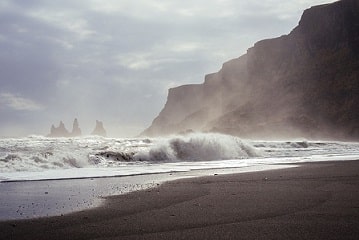 Our earth is also known as the blue planet because it is about70% water. This water is to be found underground, in lakes, rivers, streams, glaciers, and in the ocean. In fact, 97% of the water on earth is in the ocean. The problem is the state of our oceans; it is not good.
Our earth is also known as the blue planet because it is about70% water. This water is to be found underground, in lakes, rivers, streams, glaciers, and in the ocean. In fact, 97% of the water on earth is in the ocean. The problem is the state of our oceans; it is not good.
According to some beliefs, the ocean is where all life on this planet of ours began, so one would think that we would care for this vast body of water. Unfortunately, just as we do not care enough for our forests, drinking water, and various other eco-systems, so we also neglect our oceans.
The State of Our Oceans
Our oceans are part of the water cycle on earth; water evaporates into the skies, falls again in the form of rain, feeds the earth, fills rivers, is processed into drinking water for humans, used for agricultural and industrial purposes as well as domestic and personal hygiene, and eventually flows back into the ocean.
The oceans nourish our bodies and our souls, feed us and sustain us; they support all life on this planet, yet we dishonour them in so many ways:
Pollution
We pollute the ocean with careless waste and thrown-away rubbish. We allow pesticides, plastics, metals, oil, fertilizers, sewage, and anything else that humans use and then discard, to enter our oceans. More than 80% of marine pollution comes from the land and is caused by human carelessness and indifference.
Species Scarcity and Overfishing
Cod in the oceans off Newfoundland used to be so plentiful that sailors could scoop them up with their hands or by the basketful; now there is a moratorium on cod fishing to prevent the species from becoming extinct. This was mainly caused by the catch from the Grand Banks nearly tripling between 1960 and 1970, which virtually collapsed the cod stocks. This situation is not unique; all over the world governments are struggling to reign in overfishing, often by vessels from other countries.
Acidification
Carbon dioxide released into the atmosphere from deforestation and the use of fossil fuels has created a greenhouse effect which has led to global warming. The oceans have fallen foul of the excess CO2 in the form of oceanic acidification, which negatively affects ocean flora and fauna.
It is imperative that we clean up our act in order to protect not only our drinking water but also the water in our oceans. The easiest way to do this is to cease using fossil fuels, plastic packaging, factory farming, herbicides and pesticides. Do not litter and make sure that all industry and government departments in your region do not spew pollution and chemicals into our lands, rivers and oceans.
Source:
Water coolers in London and office water dispensers from Living-Water. Get bottled water coolers and mains water coolers in London.





